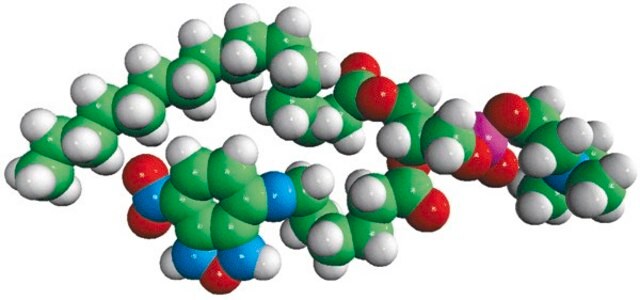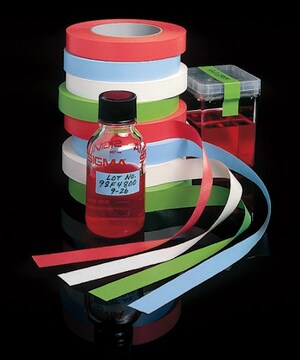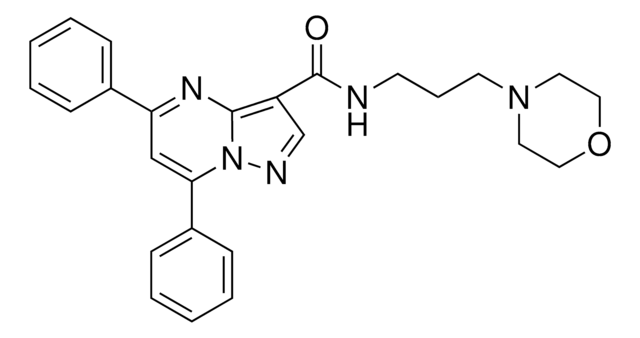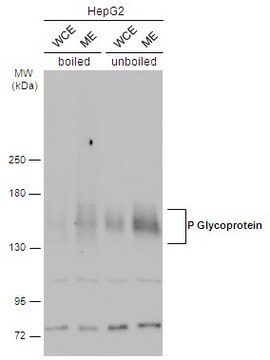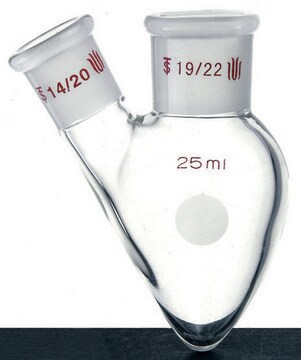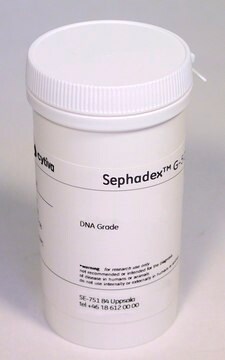SBVT07
SB-MRP4-HEK293
MRP4 human membrane vesicles
Synonym(e):
ABCC4, MRP, Multidrug resistance associated protein 4
Anmeldenzur Ansicht organisationsspezifischer und vertraglich vereinbarter Preise
Alle Fotos(1)
About This Item
UNSPSC-Code:
41106514
Empfohlene Produkte
Rekombinant
expressed in HEK 293 cells
Form
liquid
Konzentration
5 mg/mL
Farbe
off-white
UniProt-Hinterlegungsnummer
Versandbedingung
dry ice
Lagertemp.
−70°C
Angaben zum Gen
human ... ABCC4(10257)
Allgemeine Beschreibung
Membrane Preparations for Vesicular Transport Assays (VT) are suitable for general drug-efflux transporter interaction studies. Both substrate and inhibitor interactions can be assessed using vesicles. The success of substrate interaction studies strongly depends on the passive permeability of the compound. High permeability substrates might not be detected. Control Membranes with no-, or significantly lower transporter activity are also available.
Multidrug resistance associated protein 4 (MRP4), also known as ATP binding cassette subfamily C member 4 (ABCC4), is encoded by the gene mapped to human chromosome 13q32.1. The encoded protein belongs to the family of ATP-binding cassette transporters involved in ATP driven transmembranous transport of substrates.
Anwendung
In the vesicular transport assay so-called "inside-out" membrane vesicles containing ABC transporters are applied. Incubating substrates of the respective efflux transporter in the presence of the inverted membrane vesicles and ATP will allow measuring accumulation of the substrates into the vesicles. In many cases radiolabeled reporter substrates are used but recently SOLVO developed the new PREDIVEZTM Vesicular Transport Kits that use fluorescent reporter substrates.
The standard vesicular transport assay is an inhibitory assay performed with cold test articles. This assay provides information on any interaction between the ABC transporter and the test article. The transport of the reporter substrate is measured in the presence of the test article (typically in 7 concentrations) and IC50 is defined as the concentration inhibiting the transport of the reporter substrate by 50%.
Should radiolabeled form of the investigated compound or adequate analytical methods (LC/MS, HPLC) be available, the vesicular transport assay may be performed in a direct format without the reporter substrate and may identify substrate nature of the test article. The vesicular transport substrate assay is a low throughput assay. It is suitable for low permeability test compounds as high permeability compounds may escape from the vesicles through the lipid bilayer.
The standard vesicular transport assay is an inhibitory assay performed with cold test articles. This assay provides information on any interaction between the ABC transporter and the test article. The transport of the reporter substrate is measured in the presence of the test article (typically in 7 concentrations) and IC50 is defined as the concentration inhibiting the transport of the reporter substrate by 50%.
Should radiolabeled form of the investigated compound or adequate analytical methods (LC/MS, HPLC) be available, the vesicular transport assay may be performed in a direct format without the reporter substrate and may identify substrate nature of the test article. The vesicular transport substrate assay is a low throughput assay. It is suitable for low permeability test compounds as high permeability compounds may escape from the vesicles through the lipid bilayer.
SB-MRP4-HEK293 has been used in vesicular transport study.
Biochem./physiol. Wirkung
Multidrug resistance associated protein 4 (MRP4) plays a vital role in substrate-specific transport of endogenous and exogenous substrates. It also has a role in non-neoplastic conditions. MRP4 also contributes to bile secretion and various other physiological roles. Upregulated expression of the gene is associated with the pancreatic cancer development. Thus, MRP4 can be considered as a potent therapeutic target for pancreatic cancer.
Physikalische Form
Supplied as frozen membrane vesicles, containing 5 mg/ml membrane protein, labeled with volume, catalog number (transporter) and date of production.
Rechtliche Hinweise
Distributed for SOLVO Biotechnology, Inc.
Ähnliches Produkt
Produkt-Nr.
Beschreibung
Preisangaben
Lagerklassenschlüssel
10 - Combustible liquids
WGK
WGK 2
Flammpunkt (°F)
Not applicable
Flammpunkt (°C)
Not applicable
Analysenzertifikate (COA)
Suchen Sie nach Analysenzertifikate (COA), indem Sie die Lot-/Chargennummer des Produkts eingeben. Lot- und Chargennummern sind auf dem Produktetikett hinter den Wörtern ‘Lot’ oder ‘Batch’ (Lot oder Charge) zu finden.
Besitzen Sie dieses Produkt bereits?
In der Dokumentenbibliothek finden Sie die Dokumentation zu den Produkten, die Sie kürzlich erworben haben.
Erratum to: Multidrug resistance protein 4 (MRP4) expression in prostate cancer is associated with androgen signaling and decreases with tumor progression
Montani M, et al.
Virchows Archiv, 462(4), 437-443 (2013)
Efflux transport of chrysin and apigenin sulfates in HEK293 cells overexpressing SULT1A3: The role of multidrug resistance-associated protein 4 (MRP4/ABCC4)
Li W, et al.
Biochemical Pharmacology, 98(1), 203-214 (2015)
The ABCC4 gene is a promising target for pancreatic cancer therapy
Zhang Z, et al.
Gene, 491(2), 194-199 (2012)
Shu-Feng Zhou et al.
Current medicinal chemistry, 15(20), 1981-2039 (2008-08-12)
Human contains 49 ATP-binding cassette (ABC) transporter genes and the multidrug resistance associated proteins (MRP1/ABCC1, MRP2/ABCC2, MRP3/ABCC3, MRP4/ABCC4, MRP5/ABCC5, MRP6/ABCC6, MRP7/ABCC10, MRP8/ABCC11 and MRP9/ABCC12) belong to the ABCC family which contains 13 members. ABCC7 is cystic fibrosis transmembrane conductance regulator;
Christoph A Ritter et al.
Drug metabolism reviews, 37(1), 253-278 (2005-03-08)
Like other members of the multidrug resistance protein (MRP)/ABCC subfamily of ATP-binding cassette transporters, MRP4 (ABCC4) and MRP5 (ABCC5) are organic anion transporters. They have, however, the outstanding ability to transport nucleotides and nucleotide analogs. In vitro experiments using drug-selected
Unser Team von Wissenschaftlern verfügt über Erfahrung in allen Forschungsbereichen einschließlich Life Science, Materialwissenschaften, chemischer Synthese, Chromatographie, Analytik und vielen mehr..
Setzen Sie sich mit dem technischen Dienst in Verbindung.

